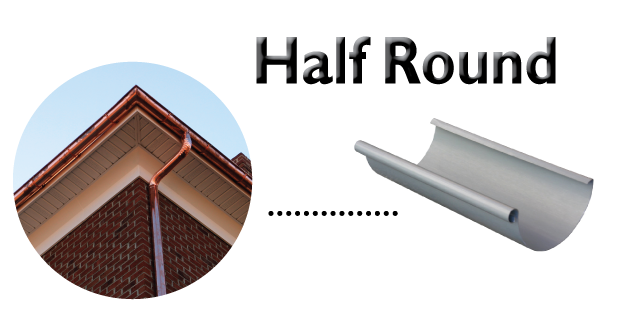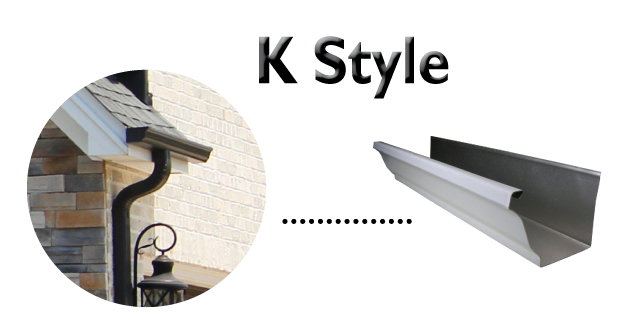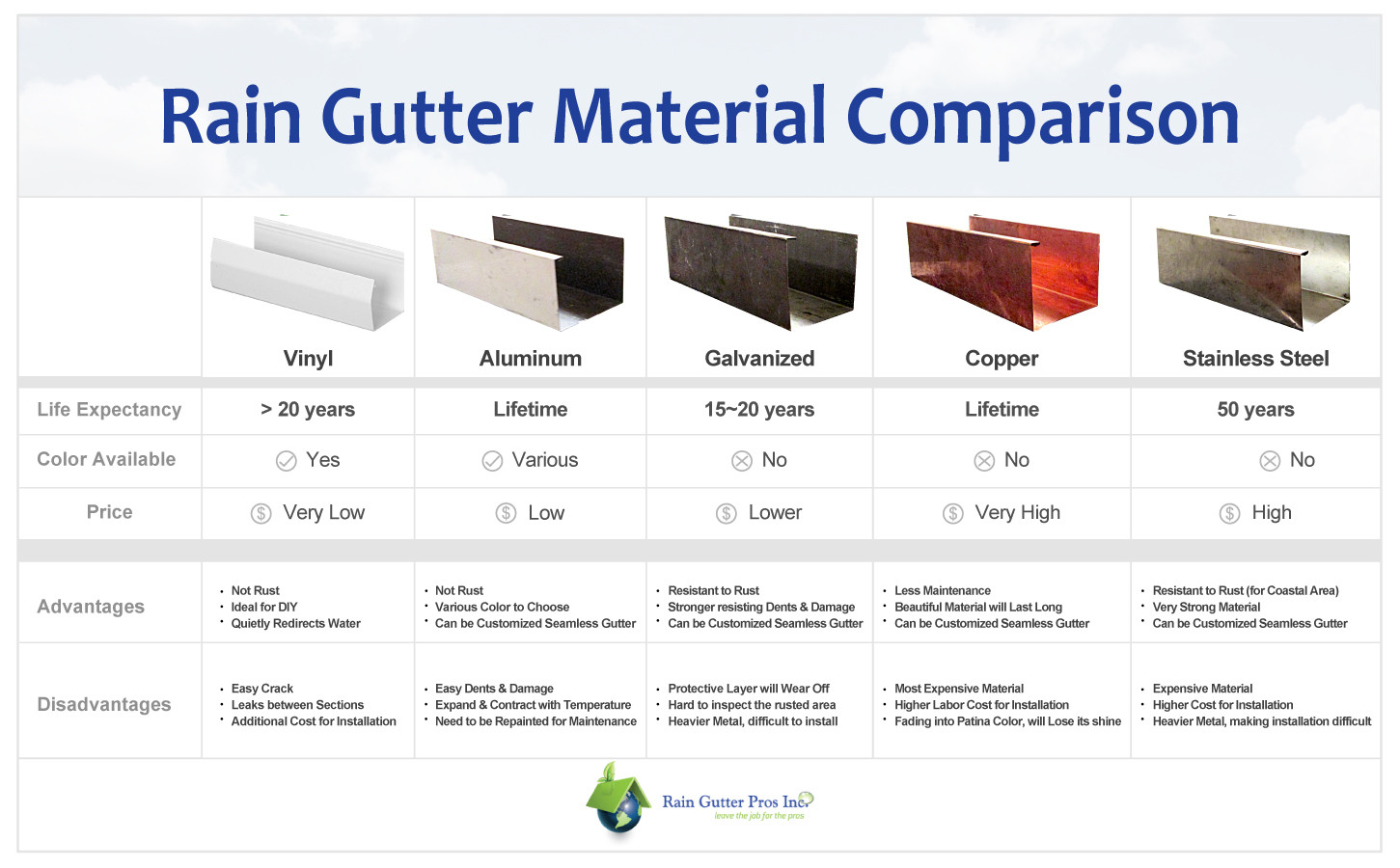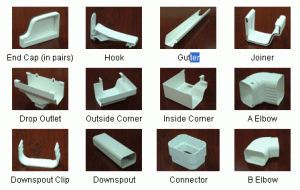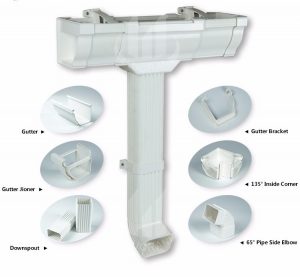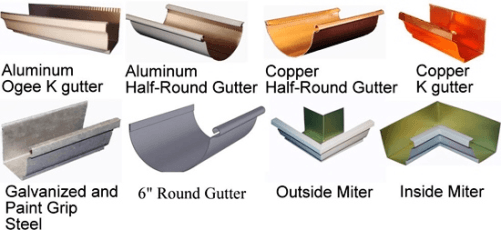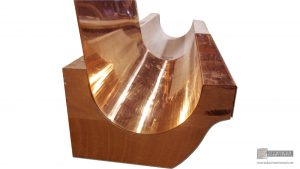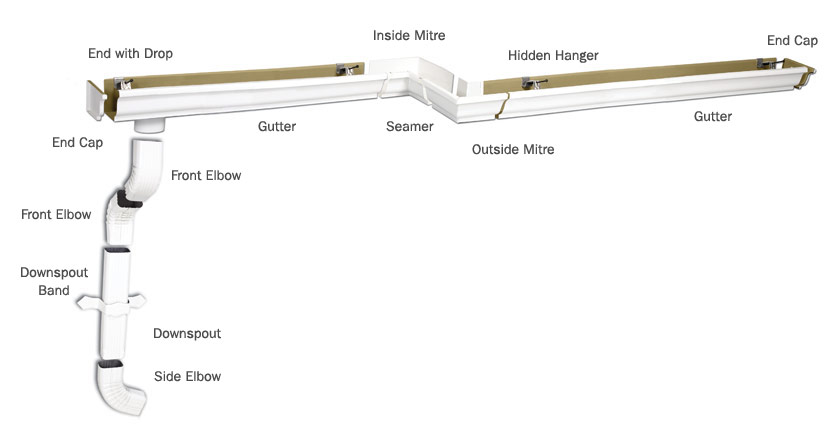WHAT IS THE BEST RAIN GUTTER MATERIAL?
Rain Gutters are an essential part of your property’s structure, and one of the most important defenses against water damage. Designed for channeling water from the roof of your property to a proper drainage system, rain gutters have become a vital feature for any home or business. Therefore, owners have the important task to make an informed decision – according to their budget and the property’s needs – in order to achieve a flawless rain gutter installation. By doing this, you are making sure that your home stays dry and your foundation stays protected against water damage.
There is a wide array of rain gutter material to choose from. it’s not about which one of them is the best or the worst; it’s about which one works best for you, since every material has its advantages and drawbacks, and it is important for you to evaluate some aspects when choosing the right material for your rain gutters.
Below is a list of the frequently used materials for rain gutters and their benefits and drawbacks, so you can go ahead confidently with your rain gutter installation.

01
PVC Gutter
PVC rain gutters are preferred by homeowners, thanks to being inexpensive, lightweight, easy to install, and the fact that they never rust. Do-it-yourself enthusiasts prefer this material because it is very easy to handle and install. However, if installed incorrectly the rain gutters can sag. Other common problems with PVC rain gutters include brittleness and cracking due to exposure to extreme temperatures. Nevertheless, they are perfect for homeowners who need new rain gutters but are on a budget. More
02
Aluminum Gutter
Aluminum rain gutters are the perfect combination of durability and price. They are a homeowner favorite because of their many advantages, such as being lightweight and easy to work with, as well as being rust-proof. Another plus is that seamless rain gutters can be manufactured with aluminum. As their name implies, these rain gutters do not have seams, thus preventing water from leaking. The makes aluminum one of the best rain gutter. The only disadvantage to aluminum rain gutters is that they aren’t as sturdy as other materials and can dent. More
03
Galvanized Steel
Galvanized steel rain gutters are very popular among homeowners. They are usually coated with a layer of zinc and can either be professionally installed or purchased as a do-it-yourself project – though it is recommended that they are installed by specialists since the rain gutters need to be soldered together. The benefits of purchasing galvanized steel material is that they are cost-efficient compared to other materials. However, this material is prone to rusting and must be painted periodically.
04
Stainless Steel
Stainless steel rain gutters are known for being extremely sturdy and durable. They won’t rust like their galvanized steel counterparts, in fact they preserve their shine for many years. However, because stainless steel is one of the strongest materials in the rain gutter industry, they are usually two-to-four times more expensive than gutters made from weaker materials.
05
Copper
Along with stainless steel, copper is another high-end material, as well as one of the most durable for rain gutters. It doesn’t rust, and because of its elegant appearance, it is desired by homeowners everywhere and one of the best rain gutter. The only drawback is the price – since it is a high-end material, owners can expect to pay N5000 to N7000 per linear foot, though prices vary with the value of copper.
06
Wood
Wood was one of the first materials used to create rain gutters but gradually dropped out of favor with the advent of more resistant materials. However, rain gutters made of redwood, cedar, and fir are still available and mainly used for renovations on historic houses. Wood rain gutters are expensive due to their classic appeal and range from N3500 to N7000 per linear foot.



